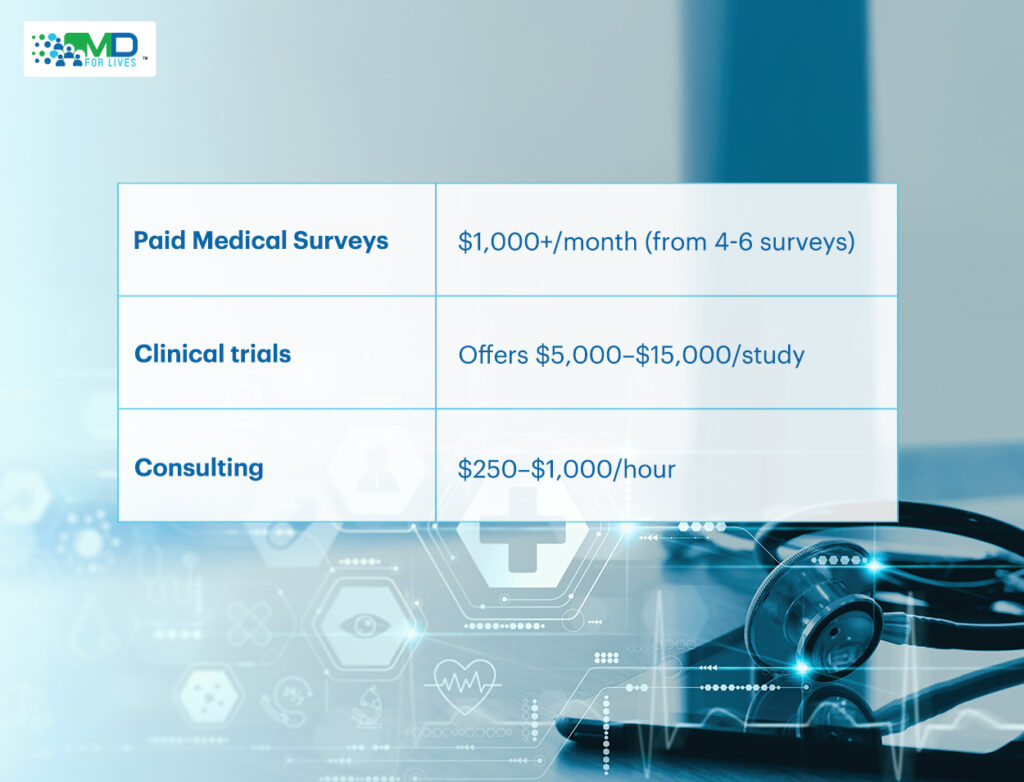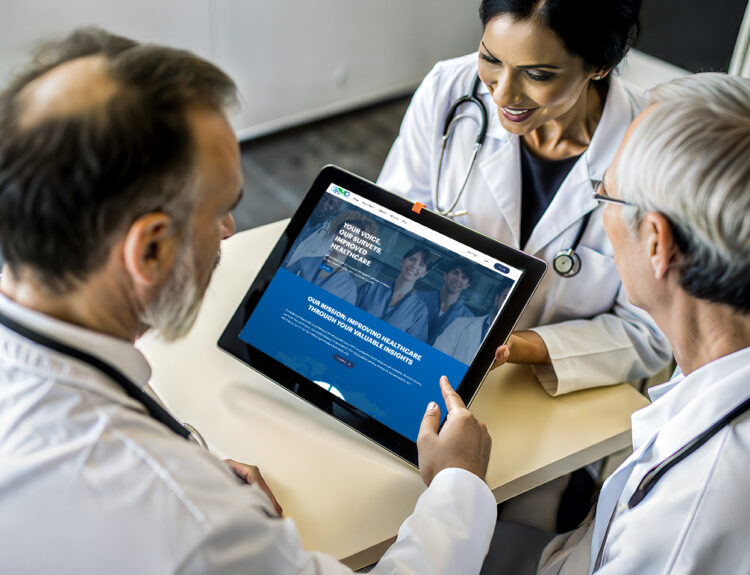Ever noticed how many medical breakthroughs begin with a doctor’s frustration? A patient doesn’t respond to standard treatment, or a diagnosis refuses to fit textbook symptoms. Well, that’s when the most important question surfaces: “Isn’t there a better way?” These everyday clinical challenges actually spark the most groundbreaking innovations in medicine.
Surprisingly, not all doctors know the importance of their opinions in medical research and innovation. But what if these observations could transform healthcare completely? With today’s technology and paid medical surveys, contributing to advances in medical research has become a lot simpler!
The medical industry now recognizes something critical – doctors stand at the perfect intersection between theory and real-world application. After all, who better understands which medical breakthroughs will succeed in actual practice? It’s time more doctors realized the power they hold in their everyday experiences to guide new medical innovations and research.
Why Doctors Are Vital to Medical Research and Innovation
Recollect the unprecedented speed of COVID-19 vaccine development?
Over 470,000 physicians worldwide joined forces to fast-track protocols, identify adverse effects early, and transform cutting-edge science into public health solutions. This remarkable collaboration revealed how advanced clinical research achieves its greatest potential when practicing doctors actively participate.
But why exactly does a doctor’s involvement make such a dramatic difference?
Well, the answer lies at the intersection of theory and reality. Medical treatments that perform perfectly in controlled settings often behave differently across diverse patient populations. Real-world factors like existing health conditions, medication interactions, and patient adherence patterns greatly impact the efficacy of treatments on patients. The question is – how can healthcare institutions bridge this gap?
Practicing doctors bring invaluable expertise in navigating these complexities! This also explains why hospitals with doctor-led research teams consistently show a 20% improvement in patient outcomes.
This powerful combination of scientific data and real-world practice drives clinical research innovation forward. The healthcare industry clearly recognizes this value, with the global clinical trials market projected to reach $101.86 billion by 2030. As medicine becomes increasingly personalized, the clinical insights from practicing doctors will remain the essential ingredient that transforms promising research into life-changing treatments.
Opportunities for Doctors to Get Involved in Research & Innovation
What exciting paths can doctors take to dive into the medical research and innovation world? Well, the options have expanded fiercely in recent years, creating entry points for every interest level and schedule.
1. Clinical trial participation and leadership
Clinical trials serve as the cornerstone of medical advancement, yet nearly 80% fail to meet enrollment targets – a problem doctors are uniquely positioned to solve. When doctors take on investigator roles, they transform abstract research protocols into viable treatment pathways.
Consider how oncology trials now regularly incorporate real-world factors like treatment tolerance and quality-of-life measures. This collaboration explains why doctor-led trials report completion rates 35% higher than those without dedicated clinical leadership.
2. Participation in paid medical surveys

For practitioners with a busy schedule, medical surveys offer perhaps the most accessible entry point! These brief but targeted questionnaires help healthcare organizations refine existing treatments and identify critical gaps.
Platforms such as MDForLives are specifically designed for healthcare professionals. Our platform makes participation straightforward, allowing busy doctors to contribute valuable clinical insights between appointments without disrupting patient care.
3. Advisory and consulting roles
Beyond traditional research methods, advisory roles have exploded in popularity. Pharmaceutical, healthcare, and biotech companies increasingly seek doctors to validate advanced technology in healthcare, ensuring new treatments are both safe and practical.
These consulting opportunities typically offer impressive compensation while allowing doctors to influence which technologies actually work for patients.
4. Publishing clinical observations
Publishing clinical observations presents another valuable pathway. Remember how Dr. Barry Marshall’s ulcer research completely transformed gastroenterology treatment protocols? Many similar breakthroughs begin with curious doctors simply sharing unexpected patterns they’ve noticed!
Publications also boost professional visibility, with over 50% of regularly publishing doctors reporting faster career advancement and conference speaking invitations.
5. Specialized research networks
A growing number of specialty-specific research networks now connect doctors facing similar clinical challenges across different practice settings.
Neurologists participating in the Traumatic Brain Injury Network, for instance, contributed to treatment protocol changes that reduced recovery times nationwide. Doctors often report that these collaborative communities provide advanced clinical research opportunities and valuable collegial support and mentorship.
The Economic and Career Benefits of Doctor-Led Research
Participating in research doesn’t just advance medicine; it can significantly boost a doctor’s career and financial outlook as well.
First and foremost, research involvement dramatically enhances professional standing. Doctors who regularly add to advances in medical research find themselves 20% more likely to be promoted to coveted leadership positions within hospitals and medical boards, according to a recent NEJM study.
The financial advantages are equally compelling! The latest Medscape Physician Compensation Report reveals that doctors who incorporate research into their professional activities earn approximately 12% more annually.
Here’s a quick breakdown of the compensation doctors can earn through various innovation in medical research opportunities:

Using Advanced Medical Technology for Better Research and Innovation
Now, how has technology advanced the medical field and who’s actually guiding these powerful tools? Behind every successful medical innovation, there’s usually a doctor providing crucial real-world perspective. Without this clinical insight, even the most advanced technologies often miss their full potential!
Take AI in healthcare, for instance. While algorithms can process incredible amounts of data, they lack the nuanced understanding that comes from years of patient care. This explains why 85% of healthcare executives now believe AI will improve healthcare operations with the input of doctors.
The most compelling success stories consistently share one element – meaningful doctor involvement throughout development. When Dr. Sangita Kapur guided AI implementation for lung nodule detection, detection rates improved by 30%. This wasn’t just a technical achievement but a perfect example of how has technology advanced healthcare systems globally.
Common Barriers Doctors Face in Contributing to Research
If doctors are at the heart of clinical innovation, why aren’t more of them actively involved in medical research? This question comes up more often than expected and for good reason! While the value of a doctor’s insight is clear, the path to contributing isn’t always smooth. What tends to get in the way?
- Not enough time: Between managing patients, reviewing charts, and handling administrative load, where does research fit in? That’s a myth that has to be busted!
- No built-in support system: What happens when a hospital or clinic doesn’t offer research infrastructure or mentorship? Even motivated doctors may feel like they’re on their own.
- It’s hard to know where to start: Should one apply to trials, reach out to pharma, or wait to be invited? Without a clear roadmap, many never take that first step!
- Assumptions about who “qualifies”: Is research only for academics or those with a PhD? That mindset can unintentionally keep everyday clinicians out of the loop. Medical surveys are perfect to fill this gap – ideal for all doctors!
Steps to Turn Clinical Experience into Impact (and Income)
When doctors think of research, many picture lab coats, dense protocols, and endless hours. But what if contributing to innovation could happen on your own terms?
Start with this question: Is there a simple way to share everyday clinical insight with the people building tomorrow’s healthcare tools?
Turns out, there is – paid medical surveys.
Medical survey platforms like MDForLives offer a seamless entry point into research. No need to pause clinical duties or take on complex trials! Just real-world feedback, provided in minutes, that helps shape real-world solutions.
Here’s how doctors are getting involved:

Step 1: Sign up on MDForLives, designed specifically for licensed doctors. Complete your verification as well!
Step 2: Complete a short profile questionnaire so the system can match surveys to your specialty.
Step 3: Receive targeted survey invites, many of which take under 30 minutes.
Step 4: Share clinical insights anonymously, complete the survey, and get compensated for your time!
Step 5: Repeat the process!
Are you next in line to contribute to the latest in cutting-edge technologies and research stirring up the field in medical sciences? Start by joining MDForLives and use your medical expertise to drive global innovation, all while earning along the way.
FAQs:
-
Why should doctors participate in medical research?
Doctors shape smarter treatments and real-world solutions. Their expertise keeps research grounded, relevant, and, well, life changing.
-
How much time does it take to be involved in research?
Time commitment varies by project. Some surveys or trials take minutes, while others may span hours or days. In fact, flexibility inspires doctors to contribute more readily.
-
Do I need a research background to participate?
Prior research experience is not required. Most websites offer clear instructions aiming for a seamless participation experience.
-
What are the benefits of participating in paid medical surveys?
You get to share what you know, shape the future of healthcare, and get rewarded. It’s an easy win for you and the medicine industry.

MDForLives is a global healthcare intelligence platform where real-world perspectives are transformed into validated insights. We bring together diverse healthcare experiences to discover, share, and shape the future of healthcare through data-backed understanding.






